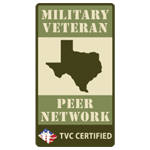Early
Childhood
Intervention
Early Childhood Intervention
Overview
Early Childhood Intervention (ECI) is a statewide program within the Texas Health and Human Services Commission (HHSC) for families with children birth up to age 3 years old with developmental delays, disabilities or certain medical diagnoses that may impact development. ECI services support families as they learn how to help their children grow and learn.
To Learn More about the Texas ECI program please visit the Texas HHSC website: ECI Texas.
What to Expect at My First Appointment
When you arrive, you will check in with the receptionist.
Please bring the following items with you, if you’d like to save time at your appointment:
- A copy of your child’s insurance card
- A copy of your child’s medical providers’ information (e.g. pediatrician, specialists, current therapists, etc.)
- Any assistive technology devices your child utilizes in his/her daily living (e.g. glasses, hearing devices, walker, wheel chair, etc.)
- Please ensure you’ve reviewed the following documents are prepared to ask questions to your ECI therapists:
Find ECI Services Near You
How Does My Child Qualify For Services?
To be eligible for ECI services your child must meet one of the following 3 criteria:
How Are Services Determined?
Your child is evaluated using the BDI-2 to determine eligibility. If your child qualifies for services, the team identifies your family’s daily routines and your child’s strength and needs. Based on the results of the evaluation and assessment, your team develops a plan for services, also known as the Individualized Family Service Plan (IFSP). Under the Individuals with Disabilities Education Act (IDEA), evaluations, assessments and IFSPs are provided at no cost to parents.
How Are Services Provided?
If you are requesting a copy of your own records:
Who Provides Services
The team that evaluates the child and plans and provides services are licensed or credentialed providers. The team may include:
- Early intervention specialists
- Speech and language pathologists
- Physical and occupational therapists
- Psychologists
- Dietitians
- Social workers
How Do I Pay For Services?
ECI asks families who can afford to do so to share in the cost of services. This is called the Family Cost Share. The amount a family pays for services is determined using a sliding-fee scale and is based on family size and income, after allowable deductions. No child or family will be turned away because of an inability to pay.
The following services are provided at no cost:
- Evaluation and assessment
- Case management
- IFSP development
- Translation and interpreter services, including sign language
These initial services help identify your child’s strengths and needs, as well as locate resources to meet those needs. You may be asked for permission to bill your or your child’s insurance for these services.
To Learn More about the Family Cost Share program please visit and review these resources:
Paying for ECI Services
Monthly Maximum Charge Sliding Scale
Why a Natural Environment?
To ensure the highest quality of service delivery to families, ECI has adopted the following Seven Key Principles from the Early Childhood Technical Assistance Center. These principles, developed by a national team of early childhood intervention experts, serve as the foundation of practice guidelines for ECI service providers statewide.
- Infants and toddlers learn best through everyday experiences and interactions with familiar people in familiar contexts.
- All families, with the necessary supports and resources, can enhance their children’s learning and development.
- The primary role of a service provider in early intervention is to work with and support family members and caregivers in children’s lives.
- The early intervention process, from initial contacts through transition, must be dynamic and individualized to reflect the child’s and family members’ preferences, learning styles, and cultural beliefs.
- Individualized Family Service Plan (IFSP) outcomes must be functional and based on children’s and families’ needs and family-identified priorities.
- The family’s priorities, needs, and interests are addressed most appropriately by a primary provider who represents and receives team and community support.
- Interventions with young children and family members must be based on explicit principles, validated practices, best available research, and relevant laws and regulations.
Stay connected
Sign up for our newsletter












